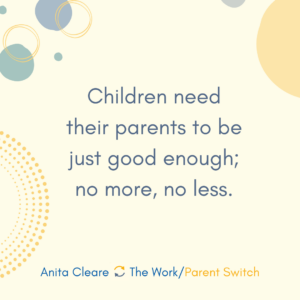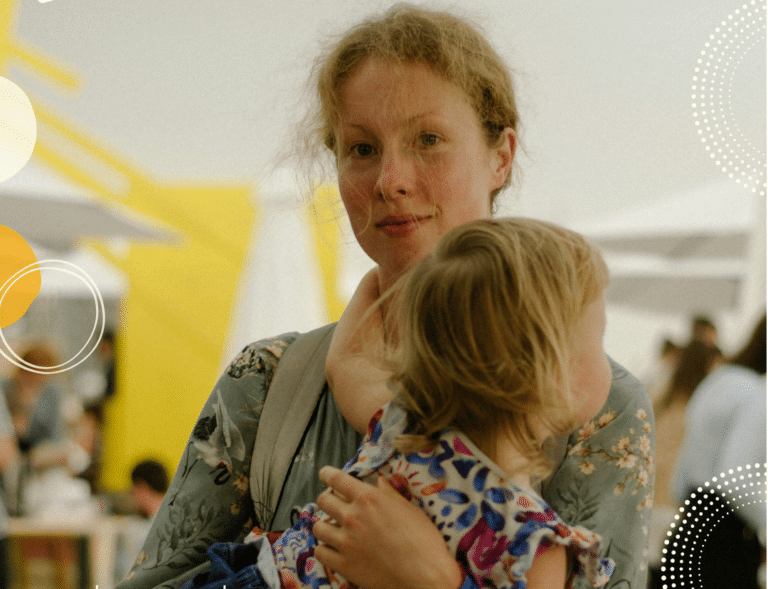Realistic expectations are good for children and parents
Having realistic expectations – of yourself and your children – is key to positive parenting. It builds children’s self-esteem, reduces parenting stress and helps you enjoy your family more.
- When we set our expectations too high, we set ourselves and our children on course to fail.
- When we set our expectations too low, we prevent children building skills and resilience and deprive them of opportunities to feel competent and effective. And we run ourselves ragged with stress and over-parenting.
Realistic expectations are good for both parents and children.
When parents expect too much from children
When parents set our expectations too high for our children (for example, expecting them to think or behave like mini-adults rather than like children/teens), they inevitably fall short. Children are not mini-adults. Their brains are still developing. They are still learning, and learning involves making mistakes and getting things wrong.
When our expectations are too high, parents risk being disappointed in our children. We might conclude that our child is more difficult or ‘naughtier’ than they should be, or that our child is deliberately defying or disrespecting us.
Or we might become anxious about our child, worried there is something wrong. Or blame ourselves, concluding that our parenting must be failing in some way.
On their side, children know when they get things wrong. They sense parents’ disappointment and frustration. And they don’t like disappointing or upsetting us – we are the foundations underpinning how they feel about themselves. So, when their parents think badly of them, it hurts.
When children get things wrong, they don’t always recognise this is the result of their parents’ unrealistic expectations. Children will often assume that they must be at fault somehow – which can lead kids to think badly of themselves, negatively impacting their self-esteem and their willingness to keep trying.
When parents’ expectations are too low
Setting the bar too low can also have negative impacts. Rising to a challenge and achieving something difficult builds children’s self-belief. When parents rush to meet our child’s every need and remove every frustration, we prevent them learning new skills and building resilience.
If we always protect our children from failing, we also prevent them from learning.
Whereas, when we let children face challenges and work through difficult situations and emotions, we send the signal “You can do this. I believe in you.”
And it’s not just the big successes that matter. Expecting children to do chores and to make an age-appropriate contribution to family life (whether that is feeding themselves or cooking dinner for the whole family) provides opportunities for children to feel capable and valued.
When parents run around tidying up after children (when they could do it themselves), or rescuing them from potential failures, we send the signal “I don’t believe you can handle this.”
At the same time, we run ourselves ragged using up our precious time (and draining our already-depleted energy) doing things for our children that it would be far better they did for themselves.
When parents expect too much from ourselves
Parents having realistic expectations of ourselves matters too. With the best of intentions, parents can set the bar so high that we expect ourselves to be superhuman – which we are not. We heap unrealistic demands upon ourselves – on top of the already huge demands of just being a parent.
We might expect ourselves to be infinitely patient, for example, and end up stretching our patience to its breaking point and going bang. With more realistic expectations of ourselves, perhaps we might have recognised that this situation was likely to trigger us and stepped in earlier with a proactive (and calmer) course of action.
Parents often feel like we should be giving our children more – more attention, more time, more play – but when there’s simply no time or space for fitting in any more, we are left feeling guilty. Guilt warps our parenting and so we end up giving in to children’s whining or making parenting decisions we don’t feel comfortable with.
Setting realistic expectations
When parents have realistic expectations of ourselves, it’s much easier to feel successful as a parent and bounce over the difficult moments – and enjoy being a parent.
When parents have realistic expectations of our children, it’s much easier for children to experience success and those precious self-esteem building moments when they rise to a challenge and feel good about themselves.
Aiming for perfect hurts everyone. Parenting is not a skill we can excel at (and nor is childhood).
Parenting isn’t a project you can complete. It’s a story of lives lived alongside each other. Complex, messy, unfair lives in which difficult things happen and families have good and bad moments. To be a truly resilient parent, you need to stop blaming (yourself, your partner, your child) and settle for being good enough.
The Work/Parent Switch, Anita Cleare
How to check your expectations
If you want to check if your expectations are realistic, here are a few tips:
- Try benchmarking your expectations against what is expected at your child’s childcare or educational setting. Would they be expected to clear the table at Nursery? Then they can also do that at home.
- Think about failure as a learning opportunity. What skills and knowledge might your child learn if you stepped back and allowed them to manage this by themselves? (see Helping children learn to fail positively).
- Go looking for opportunities for your child to stretch themselves and get the feeling “I can do hard things!” (see Activities to build children’s confidence).
- Make a list of everything you do around the house and a list of everything your child does, and identify what can be moved onto their list (see 6 Reasons your children should do chores).
- Take a long hard look at your To Do list. Are you cramming too much in? What can be outsourced, delayed, left undone or done less well? (see The efficiency trap)
Having realistic expectations really matters in parenting. When we have realistic expectations – of ourselves and of our children – we set everybody up to succeed.
READ NEXT: How to be a happy working parent








Leave a Reply